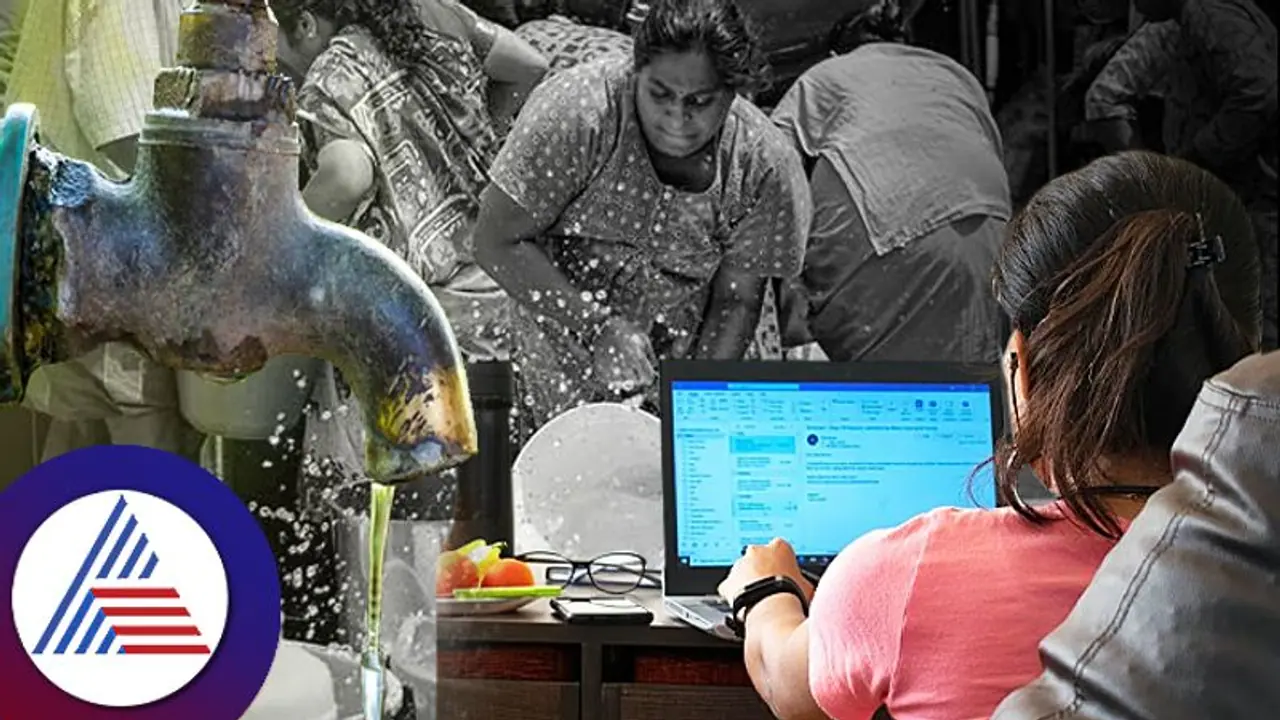Bengaluru, India's IT hub, faces a severe water crisis, potentially driving IT companies and residents away. Rapid population growth has strained infrastructure, worsened by drought conditions. Water scarcity impacts daily life and crucial infrastructure like the metro. Metro ridership declines due to water shortage, remote work options, summer temperatures, and disruptions.
Bengaluru, known as the IT capital of India, is grappling with a severe water crisis, leading to a potential exodus of IT companies and their employees from the city. The burgeoning IT sector, which contributes significantly to Bengaluru's revenue, is facing challenges as the water scarcity worsens, impacting not only daily life but also the city's vital infrastructure like the metro.

Over the years, Bengaluru has witnessed exponential growth, with its population swelling from 90 lakhs to 1.40 crores within a short span. However, the rapid expansion has outpaced the efforts of governments and local administrative bodies to maintain adequate infrastructure, leading to a dire situation, particularly concerning water supply.
Water crisis hits Bengaluru's oxygen hub Lalbagh; Requires 1.5 million litres of water daily to quench thirst
The current year has seen Karnataka, including Bengaluru, reeling under drought conditions, exacerbating the water scarcity issue. As a result, water supply to Bengaluru, sourced from the Cauvery valley, is constrained, prompting authorities to enforce restrictions. The scarcity has forced residents, including IT employees accustomed to the city's amenities, to contemplate leaving in search of necessities like water.
Bengaluru water crisis: Megastar Chiranjeevi calls for 'rechargeable borewells', shares conservative measures
The impact of the water crisis extends to the city's public transport system, notably the Bengaluru Metro. The Purple Line, which serves as a vital link to the IT corridor, has witnessed a significant decline in ridership. Expectations of 7.5 lakh daily passengers following the inauguration of the Baiyappanahalli- K.R Puram stretch have fallen short, with figures dwindling to 6.7 lakh passengers daily.
Bengaluru water crisis: Experts call for Work From Home as companies offer perfumes to employees
Several factors contribute to the decline in metro ridership. The foremost is the acute water shortage gripping the city. Additionally, the availability of remote work options due to the government's directive has led some IT employees to opt for working from the comfort of their homes, further reducing the need for commuting.
Moreover, the scorching summer temperatures and frequent disruptions on the metro line have deterred people from venturing out. The onset of summer vacations also adds to the likelihood of decreased metro patronage.
